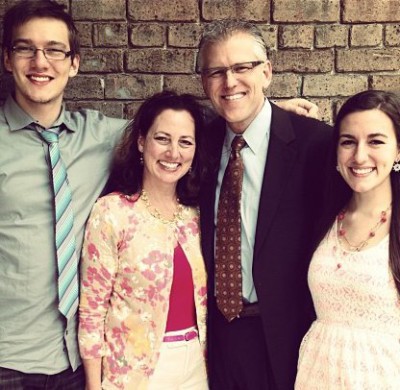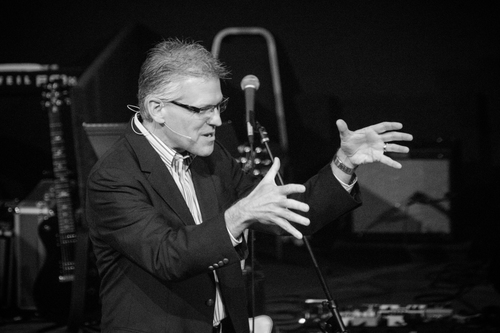I feel I can confidently say that I hold the title of “World’s Worst Church Planter.”
The truth is, I never wanted to be a church planter. In fact, I had only ever met one church planter in my life, and I thought he was crazy. He had moved his wife and kids to a new city and began meeting everyone he could so that he could start something new.
Who does that? Bear in mind, this was over 20 years ago—way before church planting was cool, way before networks and boot camps and assessments, and way, way before strategic funding and partnerships.
So you can imagine my surprise when I found myself convinced that God was calling me to plant a church. But I did it. I knocked on doors, got entrenched in the community, gathered a small group, and launched weekly worship services. It was very hard and very slow at first, but the last two years I was with that church we led our association in baptisms. People were coming to Jesus, we bought some property, and the future was bright.
Within 12 months of my leaving, the church ceased to exist.
Now let me be clear. The church did not fold because I left. The church folded because it wasn’t healthy. I was pretty good at sharing the Gospel and preaching the word. I knew how to gather a crowd. But I had no idea what it meant to plant a church. When I left those precious people, they all loved each other, and they loved Jesus, but I did not leave them with a viable church.
This is why I would like to begin a series of posts dealing with church health. I have learned the hard way that just because we are “doing church,” even if we are growing, does not mean that we are healthy. Think about a healthy body. By healthy, we don’t mean “alive.” A healthy body is doing more than processing oxygen and pumping blood. A healthy body is functioning well as it was designed to do.
Similarly, a healthy church should be accomplishing what it was created to do. And what is that? The way I read Scripture, our primary mission is to make disciples. In the church I planted, I baptized a lot of people, but we didn’t make a lot of disciples. And the reason we didn’t make a lot of disciples is that we really had no strategy—no plan—in place to do so. And apparently we were not alone.
According to a recently released study of 1,050 Evangelical and Reformed pastors by the Francis A. Schaeffer Institute of Church Leadership Development (FASICLD), most churches have not thought through the disciple-making process. The study found that 81% of the pastors surveyed said there was “no regular discipleship program or effective effort of mentoring their people or teaching them to deepen their Christian formation at their church.”
Maybe you are in that same camp. In fact, according to the statistics, that’s where the vast majority of us are. But how do we expect disciples to be made if we do not have a plan in place? Of course, as pastors, we usually like people. We like ministering to folks, we like preaching and teaching, and we like sharing the Gospel. We don’t really enjoy the kind of behind the scenes nuts and bolts kind of stuff that is involved in making things work. But systems and processes are the kinds of things that build a foundation for a truly healthy church.
So, some suggestions:
1. Clarify your mission. What are you supposed to be doing? If you aren’t clear, you’ll just be a bunch of moving parts, each doing its own thing.
2. Communicate the mission. Make sure everyone on your team and in your church understands that your mission is what sets your agenda. Our mission statement is not just a slogan. It is what drives us. When I meet with our leaders, I am constantly asking, “How does this further the mission?”
3. Make plans and develop a strategy. When someone comes to Jesus, how exactly are you going to get him connected to the body and help him grow into a mature, disciple-making Christian? This does not happen automatically, but we have to be intentional. This will involve numerous facets, such as leadership recruiting and training, curriculum selection, funding, space issues, evaluation tools, and plans for growth.
4. Work your strategy, making necessary adjustments as you go. No strategy is perfect, and no strategy can anticipate every eventuality. So, while you need to be committed to the strategy, don’t be so inflexible that you can change things up if you need to.
5. Be a learner. Maybe you’re good at this stuff, and maybe you’re not. Either way, always be willing to learn from others. I seize every opportunity to ask other pastors about what they’re doing and how they do it. And just recently, I was eating lunch with two men—a retired pastor and a current pastor whose church runs in the thousands. The current pastor was peppering the retired pastor with questions about how he once did things and about what he is currently seeing in other churches. I so admired that. Find those pastors you respect. Take them to lunch. Ask them to meet with your staff. Pick their brains.
 Systems and processes are not very sexy. But these are the things that really can make a difference between a healthy church and one on life support. We need them for every facet of church, too. Discipleship, worship planning, leadership development, money management, etc. This stuff might not be the most exciting stuff we do. But hard work in the background will have a rich payoff down the road.
Systems and processes are not very sexy. But these are the things that really can make a difference between a healthy church and one on life support. We need them for every facet of church, too. Discipleship, worship planning, leadership development, money management, etc. This stuff might not be the most exciting stuff we do. But hard work in the background will have a rich payoff down the road.



Comment(1)
Gail Smith says
August 27, 2013 at 4:03 pmWords of wisdom from our wise pastor ….good stuff for every minister of a church!